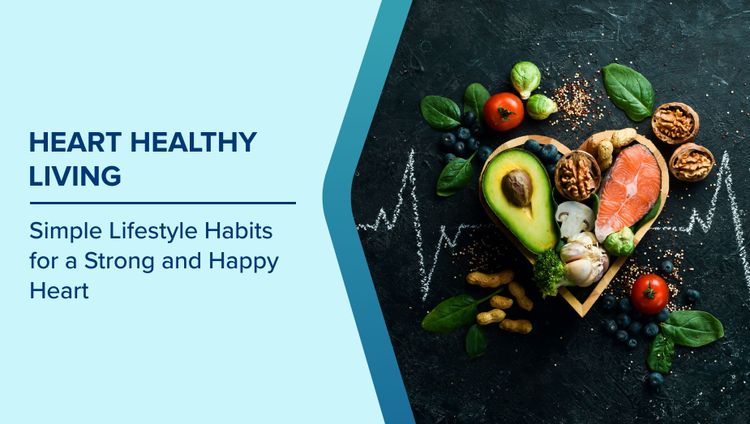In 2025, doctors and wellness gurus globally are touting the significance of “micro-habits,” minuscule, steady lifestyle adjustments that form long-term shields for the heart. They don’t require huge sacrifices; they’re easy, realistic moves that can be seamlessly integrated into daily routines, with long-term cumulative benefits.
Move Every Hour — Even for Two Minutes
Sitting is the new smoking: long periods of sitting can impede your circulation, increase your cholesterol, and raise the risk of heart disease. The answer is not necessarily a gym membership—it’s motion.
Small step: Set a timer or use your smartwatch to alert you to stand and move every hour. Go to the water cooler to stretch or do 10 squats by your desk.
Now let’s take … And add the 10-Minute Walk Rule to your mix of moves.
You don’t have to run a marathon to have a stronger heart. Regular walks after meals regulate blood sugar and are good for the heart.
Mini-habit: Take a 10-minute brisk walk after lunch/dinner. It decreases postprandial glucose and the metabolic rate.
- In just weeks, this one simple habit can give you benefits as regular as workouts.
Start Your Day With a “Heart Healthy” Morning Routine
The first 60 minutes of the morning may affect your heart. A frazzled morning ramps up stress hormones; a calm, mindful one decreases them.
Mini habit: Wake up, drink water, take 3 deep breaths, and do 2 minutes of stretching before you even look at your phone. A meditation will hold you upright for the next couple of minutes.
- This brief helps your body’s relaxation, which slows your heart rate and can even help normalize your blood pressure.
Proper sleep
Now, a growing body of evidence suggests that poor sleep is also a big risk factor for heart disease.
Mini-habit: Try to go to bed at the same time every night. Turn off screens 30 minutes before bed and dim lights.
- You may also be at risk of dying of a heart condition, and increasing your sleep by just 30 minutes a night significantly reduces that risk.
Breathe Away Your Stress
Prolonged stress will increase the production of cortisol and adrenaline, which can damage your arteries, contribute to your heart beating faster under stress, and make you more likely to smoke and eat sugary and fatty foods. One of the simplest tools at your disposal to combat this is mindful breathing.
Mini-habit: Box breathe: Breathe in for 4, hold 4, breathe out for 4, hold 4. Repeat this a few times when you feel stressed.
- And that pause sends a signal of relaxation to your body, slowing your heart rate and, in some cases, normalizing your blood pressure.
Cut Down on the “Silent Salt” and Sugar
Do you know how much hidden salt and sugar you consume from sauces, breads, snacks, and packaged foods? They’re both linked with high blood pressure and raised cholesterol.
Mini-habit: Read nutrition labels and no more than 2 grams of sodium about 1 teaspoon of salt) per day.
Hence, have to focus on consistency, not perfection.
Loneliness is as bad for your heart as smoking 15 cigarettes a day, according to research and gold-standard human studies. Social isolation induces inflammation and stress.
Mini-habit: Call or text one friend or family member in a day. Meet a loved one once a week for tea or a walk.
- Good emotional associations help reduce blood pressure and overall heart resilience to social distress.
Practice Gratitude or Reflection
Is that really big? “You emotionally affect how your heart operates, and it listens,” says Louchheim. Gratitude and mindfulness are the stress hormones that suppress heart rate.
Mini-habit: Write down three things you’re grateful for or that went well today before you go to sleep. The ritual soothes the spastic, holds you in slumber, and increases heart rate variability, a sign of cardiac health.
Eat mindfully
Eat mindfully, not just mindfully ‘good for you’ foods, even if your meals are well-balanced and contain all the food groups, eating too quickly can make you eat much, not chew your food very well, and you end up feeling even more stressed.
Mini-habit: Sit down to eat. Store your phone away. Take Smaller Bites and Eat Slower.
Make Consistency the Goal
Everyone longs to change their lifestyle, but it’s because they want to be perfect. But it’s consistency, not intensity, that saves the heart.
Mini-habit: Start with just two or three habits from this list. Add one more when they’re so second-nature that you don’t even think about them.
- Next thing you know, you will be riding a solid, long-lasting routine that leads your heart down the road.
The Takeaway
You don’t need to go on extreme diets or enroll in expensive programs to take care of your heart. It’s a package of mini habits that you can weave into your daily life. There’s one thing: your heart health is just the sum of all those tiny decisions you make every day. Take it easy, be consistent, and let the beat of your heart flow smoothly if you know that progress is already underway inside you.
FAQs
Q1: How soon will I see results after changing my lifestyle?
Benefits such as increased energy or lower blood pressure may be experienced after 2–4 weeks. The heart-healthy behaviors continued to accumulate, benefiting them over time.
Q2: Is my heart happy with a short walk?
Yes! Spreading the eating process, like walking and running, stimulates blood sugar and can improve blood circulation.



